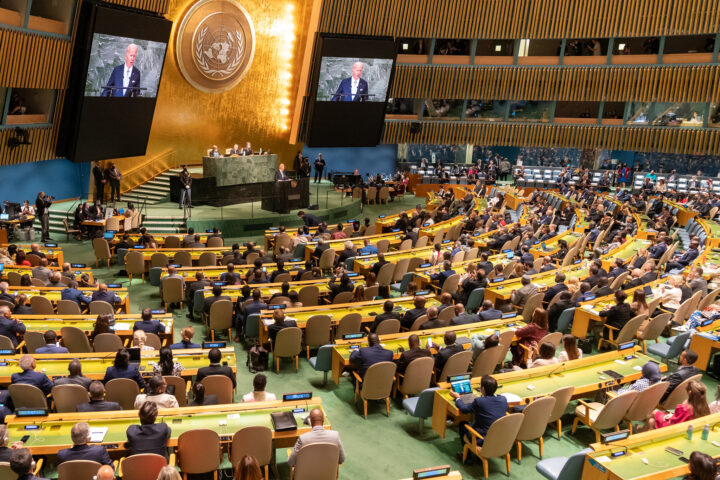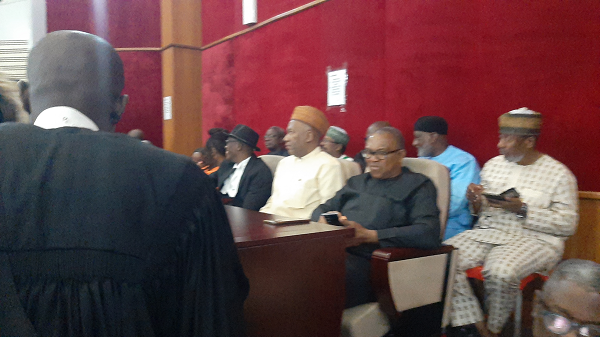Bulkachuwa, the judiciary and the limits of parliamentary privilege
A federal high court in Abuja has dismissed a suit filed by Adamu Bulkachuwa seeking to stop the Independent Corrupt Practices and other related offences Commission (ICPC) from investigating him over the comment he made during the valedictory session of the 9th national assembly.
In a judgment on Tuesday, Inyang Ekwo, presiding judge, held that the suit lacked merit and ought to be dismissed.
Speaking at the senate valedictory session in June, the former senator said he often “encroached on” his wife’s space while she was in office.
But Ahmad Lawan, the former senate president who presided over the session, interrupted the senator before he spoke any further.
Advertisement
Zainab, a former president of the court of appeal, was the first female to hold the position.
Bulkachuwa’s comments sparked outrage, with many Nigerians calling for investigations into his claim.
The ICPC then commenced an investigation and invited the former senator for questioning.
Advertisement
Bulkachuwa was scheduled to appear at the ICPC office on July 6 but he filed a suit to stop the invitation.
In the suit marked FHC/ABJ/CS/895/2023, Bulkachuwa argued that he was protected by constitutional immunity as a senator when he made the comment, which he said, was misinterpreted.
In his supporting affidavit, he explained that as a serving senator, he was, by law, immune to arrest or detention over any conduct, action or speech he made on the floor of the senate.
Corroborating Bulkachuwa’s submission, Magaji Tambuwal, clerk of the national assembly, averred in a counter-affidavit that as of the time the former senator made the statement, “he still enjoyed all the privileges and immunities of a legislator under Nigerian laws”.
Advertisement
‘CONFESSION OF ILLEGAL ACT’
However, in his judgment, Ekwo dismissed Bulkachuwa’s claim of legislative immunity.
The judge held that Bulkachuwa’s statement amounts to a “confessional” one and is not covered by Section 39(1) of the 1999 Constitution.
“In a formal setting like that plenary session or committee proceedings of the senate, it is not expected that a person who is privileged to voice any expression will utter words or express opinion or impart ideas or give information that cannot be defended under the constitution,” the judge said.
Advertisement
“Upon studying the provision of Section 39 (1) of the 1999 Constitution (as amended), it is my opinion, that the words uttered by the plaintiff on the floor of the senate on Saturday, 10th June 2023 was a confession of doing an act that is prohibited by law.
“When a person confesses that he influenced a judicial officer to help his friends and colleagues, such a person has gone beyond the limit of freedom of speech that is reasonably covered and protected by the provision of Section 39 (1) of the 1999 Constitution (as amended).
Advertisement
“A person who has used the opportunity given to him by the constitution to express himself freely and uses the opportunity to expose his actions or conduct which the law of the land criminalises has unwittingly invited law enforcement agencies to question him.
“This is what the plaintiff did in this case.
Advertisement
“I therefore find that that the speech of the plaintiff on the floor of the Senate on June 10, was a confession of illegal act and Section 39 (1) of the 1999 Constitution (as amended) cannot be invoked to cover such and I so hold.”
Advertisement
Add a comment






